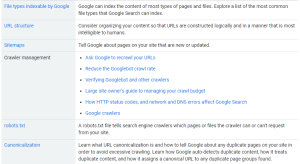Schema Markup: Boosting SEO with Structured Data
admin July 18, 2018 0The impact of Schema Markup on SEO can vary depending on factors like the competitiveness of your industry and the quality of your content. However, many website owners report seeing noticeable improvements in search visibility within a few weeks.

Introduction
In the dynamic landscape of digital marketing, staying ahead of the curve is essential. One such game-changer in the realm of Search Engine Optimization (SEO) is Schema Markup. It’s a powerful tool that can significantly enhance your website’s visibility on search engines. In this comprehensive guide, we’ll delve deep into Schema Markup: Boosting SEO with Structured Data, exploring its nuances, benefits, and implementation strategies.
Understanding Schema Markup
What is Schema Markup?
Schema Markup, also known as Schema.org Markup, is a structured data vocabulary recognized by major search engines like Google, Bing, Yahoo!, and Yandex. It provides a standardized way to communicate information about a webpage’s content, helping search engines understand the context and relevance of the information.
How Does Schema Markup Work?
When implemented, Schema Markup adds an extra layer of information to your website’s HTML code. This additional data offers explicit details about the content, such as product names, prices, ratings, and more. Search engines then use this information to display rich snippets in search results, providing users with more context before they even click on the link.
Benefits of Schema Markup
Embracing Schema Markup can unlock a multitude of advantages for your website’s SEO strategy:
Enhanced Visibility
By providing search engines with precise information about your content, Schema Markup increases the likelihood of your website appearing in rich snippets, featured snippets, and other prominent search results features.
Improved Click-Through Rates (CTR)
Rich snippets make your search result stand out, capturing users’ attention and increasing the likelihood of them clicking on your link. This can lead to higher CTRs and, ultimately, more organic traffic.
Better User Experience
Schema Markup helps search engines understand your content’s context, ensuring it’s delivered to the right audience. This leads to more relevant search results for users, enhancing their overall experience.
Competitive Edge
Not all websites utilize Schema Markup to its full potential. By implementing it effectively, you gain a competitive advantage, positioning your site as a more informative and trustworthy source in the eyes of both users and search engines.
Implementing Schema Markup: Best Practices
Choosing the Right Schema Types
Selecting the appropriate schema types is crucial. Consider the nature of your content and choose schemas that accurately represent it. This could include schemas for articles, products, events, reviews, and more.
Structured Data Testing
After implementing Schema Markup, it’s vital to use tools like Google’s Structured Data Testing Tool to ensure there are no errors or warnings. This step guarantees that search engines can interpret the data correctly.
Monitoring Performance
Regularly monitor how your rich snippets are performing in search results. Analyze metrics like CTR, bounce rate, and time on page to fine-tune your Schema Markup strategy.
Keeping Up with Updates
Stay informed about changes and updates to the Schema Markup vocabulary. As search engines evolve, so do the best practices for implementing structured data.
FAQs
How long does it take to see results after implementing Schema Markup?
The impact of Schema Markup on SEO can vary depending on factors like the competitiveness of your industry and the quality of your content. However, many website owners report seeing noticeable improvements in search visibility within a few weeks.
Are there any drawbacks to using Schema Markup?
While Schema Markup offers numerous benefits, it’s not a one-size-fits-all solution. Some websites may find it more challenging to implement, and incorrect usage can lead to penalties from search engines. It’s crucial to follow best practices and regularly audit your structured data.
Can Schema Markup be used for non-English content?
Absolutely. Schema Markup supports multiple languages, allowing you to provide context and information in various linguistic contexts.
Does Schema Markup work for mobile search results?
Yes, Schema Markup enhances the visibility of your content on both desktop and mobile search results, ensuring a seamless user experience across all devices.
Is Schema Markup a ranking factor?
While Schema Markup doesn’t directly influence rankings, it indirectly impacts SEO by improving click-through rates, user engagement, and overall user experience—all of which contribute to a website’s authority and relevance in the eyes of search engines.
Can I implement Schema Markup on an e-commerce website?
Certainly. E-commerce websites can benefit immensely from Schema Markup, particularly in showcasing product information, ratings, prices, and availability in search results.
Conclusion
Embracing Schema Markup is a powerful strategy for elevating your SEO game. By providing search engines with structured data, you enhance the visibility, relevance, and user experience of your content. Remember to stay updated with the latest best practices and monitor your performance to ensure you’re making the most of this invaluable tool.





